Editor’s notice: This text, initially posted on Oct. 23, 2024, has been up to date.
Bodily AI — the embodiment of synthetic intelligence in robots, visible AI brokers, warehouses and factories and different autonomous programs that function in the actual world — is experiencing its breakthrough second.
To assist builders construct efficient bodily AI programs in industries akin to transportation and mobility, manufacturing, logistics and robotics, NVIDIA builds three computer systems that advance bodily AI coaching, simulation and inference.
What Are NVIDIA’s Three Computer systems for AI Robotics?
NVIDIA’s three-computer answer contains: (1) NVIDIA DGX AI supercomputers for AI coaching, (2) NVIDIA Omniverse and Cosmos on NVIDIA RTX PRO Servers for simulation and (3) NVIDIA Jetson AGX Thor for on-robot inference. This structure permits full growth of bodily AI programs, from coaching to deployment.
What Is Bodily AI, and Why Does It Matter?
Not like agentic AI, which operates in digital environments, bodily AI are end-to-end fashions that may understand, cause, work together with and navigate the bodily world.
For 60 years, “Software program 1.0” — serial code written by human programmers — ran on general-purpose computer systems powered by CPUs.
Then, in 2012, Alex Krizhevsky, mentored by Ilya Sutskever and Geoffrey Hinton, gained the ImageNet laptop picture recognition competitors with AlexNet, a revolutionary deep studying mannequin for picture classification.
This marked the business’s first contact with AI. The breakthrough of machine studying — neural networks operating on GPUs — jumpstarted the period of Software program 2.0.
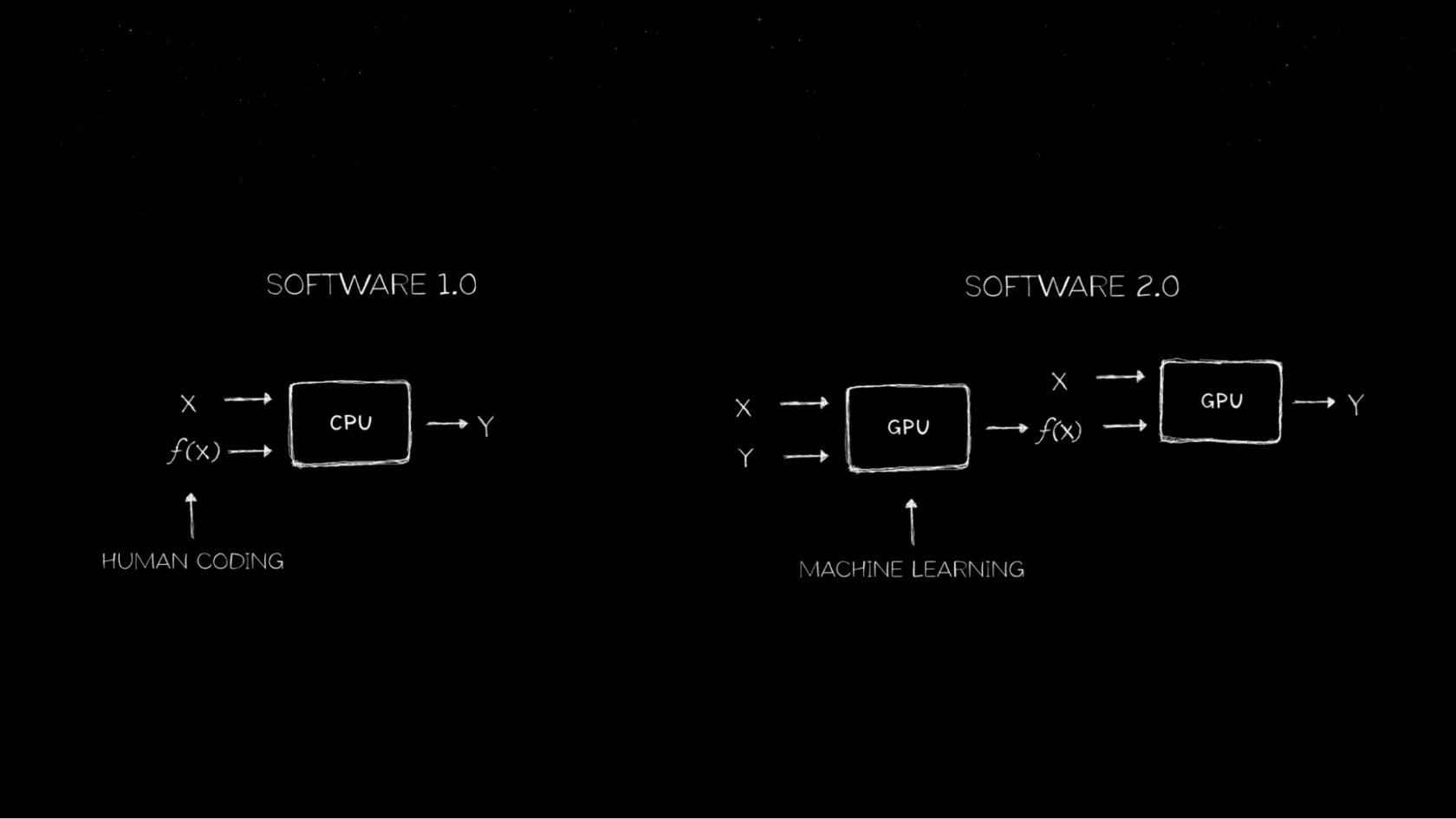
Right now, software program writes software program. The world’s computing workloads are shifting from general-purpose computing on CPUs to accelerated computing on GPUs, leaving Moore’s regulation far behind.
With generative AI, multimodal transformer and diffusion fashions have been skilled to generate responses.
Giant language fashions are one-dimensional — in a position to predict the subsequent token in modes like letters or phrases. Picture- and video-generation fashions are two-dimensional, in a position to predict the subsequent pixel.
None of those fashions can perceive or interpret the 3D world. That’s the place bodily AI is available in.
A robotic is a system that may understand, cause, plan, act and study. Robots are sometimes considered autonomous cellular robots (AMRs), manipulator arms or humanoids. However there are numerous different sorts of robotic embodiments.
Within the close to future, every thing that strikes, or that displays issues that transfer, will probably be an autonomous robotic system. These programs will probably be able to sensing and responding to their environments.
Every thing from autonomous automobiles, surgical rooms to information facilities, warehouses to factories, even traffic-control programs or complete sensible cities will rework from static, operated by hand programs to autonomous, interactive programs embodied by bodily AI.
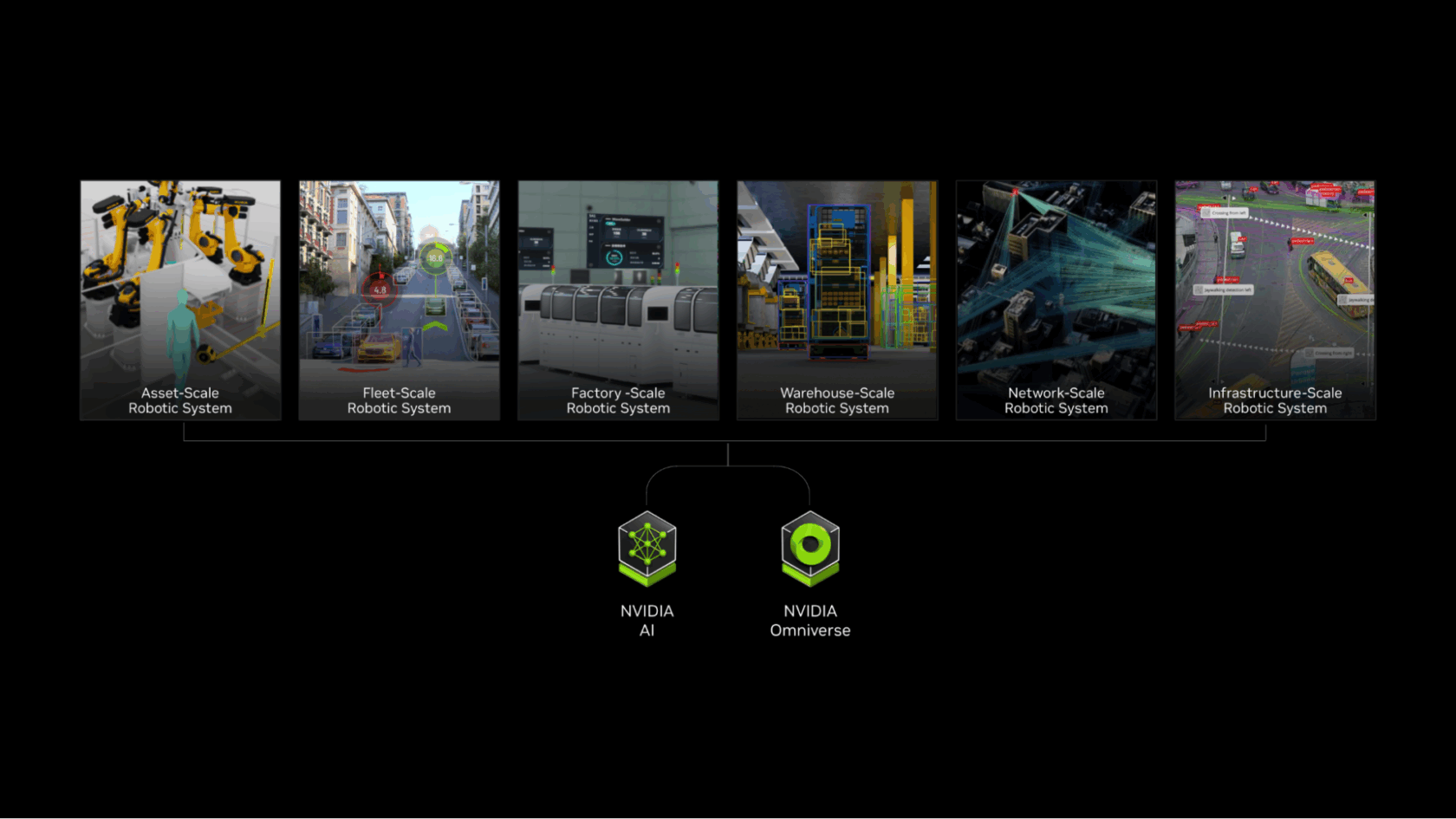
Why Are Humanoid Robots the Subsequent Frontier?
Humanoid robots are a super general-purpose robotic manifestation as a result of they will function effectively in environments constructed for people whereas requiring minimal changes for deployment and operation.
The world marketplace for humanoid robots is anticipated to achieve $38 billion by 2035, a greater than sixfold enhance from the roughly $6 billion for the interval forecast practically two years in the past, in accordance with Goldman Sachs.
Researchers and builders all over the world are racing to construct this subsequent wave of robots.
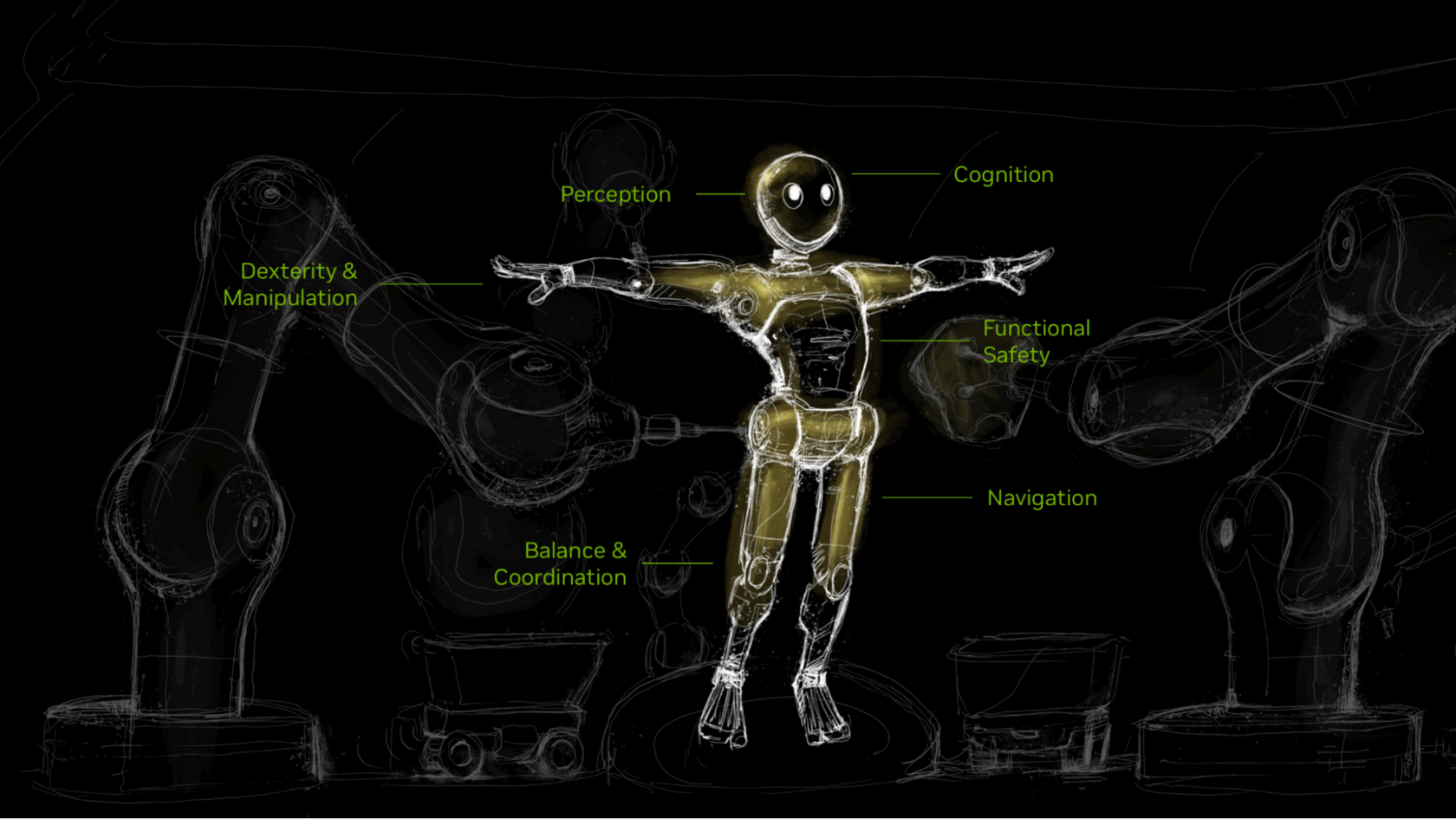
How Do NVIDIA’s Three Computer systems Work Collectively for Robotics?
Robots learn to perceive the bodily world utilizing three distinct sorts of computational intelligence — every serving a essential position within the growth pipeline.
1. Coaching Laptop: NVIDIA DGX
Think about attempting to show a robotic to grasp pure language, acknowledge objects and plan complicated actions — all concurrently. The large computational energy required for this type of coaching can solely be achieved via specialised supercomputing infrastructure, which is why a coaching laptop is important.
Builders can pre-train their very own robotic basis fashions on the NVIDIA DGX platform, or use NVIDIA Cosmos open world basis fashions or NVIDIA Isaac GR00T humanoid robotic basis fashions as base fashions for post-training new robotic insurance policies.
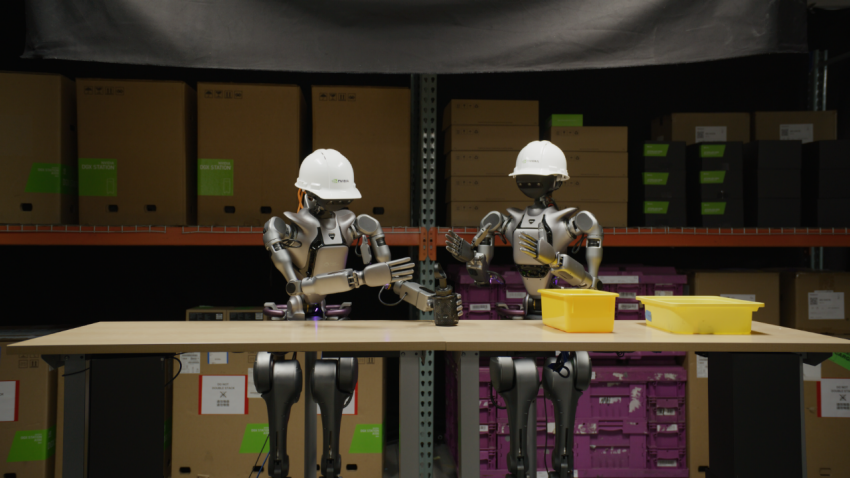 2. Simulation and Artificial Knowledge Technology Laptop: NVIDIA Omniverse with Cosmos on NVIDIA RTX PRO Servers
2. Simulation and Artificial Knowledge Technology Laptop: NVIDIA Omniverse with Cosmos on NVIDIA RTX PRO Servers
The most important problem in growing generalist robotics is the info hole. LLM researchers are lucky to have the world’s web information at their disposal for pretraining. However this doesn’t exist for bodily AI.
Actual-world robotic information is proscribed, expensive, and tough to gather, notably when getting ready for edge instances that lie past what pretraining can attain. Accumulating information is labor intensive, making it costly and onerous to scale.
Builders can use Omniverse and Cosmos to generate large quantities of bodily based mostly, various artificial information — whether or not 2D or 3D pictures, segmentation or depth map, or movement and trajectory information, to bootstrap mannequin coaching and efficiency.
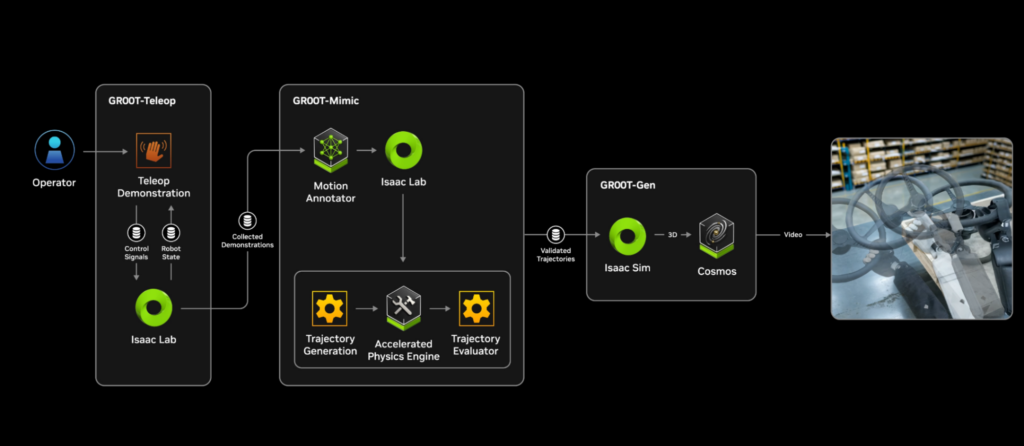
To make sure robotic fashions are protected and performant earlier than deploying in the actual world, builders have to simulate and check their fashions in digital twin environments. Open supply frameworks like Isaac Sim, constructed on Omniverse libraries, operating on NVIDIA RTX PRO Servers, allow builders to check their robotic insurance policies in simulation — a risk-free setting the place robots can repeatedly try duties and study from errors with out endangering human security or risking expensive {hardware} harm.
Researchers and builders may use NVIDIA Isaac Lab, an open-source robotic studying framework that powers robotic reinforcement studying and imitation studying, to assist speed up robotic coverage coaching.
3. Runtime Laptop: NVIDIA Jetson Thor
For protected, efficient deployment, bodily AI programs require a pc that allows real-time autonomous robotic operation with the computational energy wanted to course of sensor information, cause, plan and execute actions inside milliseconds.
The on-robot inference laptop must run multimodal AI reasoning fashions to allow robots to have real-time, clever interactions with folks and the bodily world. Jetson AGX Thor’s compact design meets onboard AI efficiency computing and power effectivity wants whereas supporting an ensemble of fashions together with management coverage, imaginative and prescient and language processing.
How Do Digital Twins Speed up Robotic Growth?
Robotic amenities end result from a end result of all of those applied sciences.
Producers like Foxconn and logistics firms like Amazon Robotics can orchestrate groups of autonomous robots to work alongside human staff and monitor manufacturing facility operations via tons of or hundreds of sensors.
These autonomous warehouses, crops and factories could have digital twins for format planning and optimization, operations simulation and, most significantly, robotic fleet software-in-the-loop testing.
Constructed on Omniverse, “Mega” is a blueprint for manufacturing facility digital twins that allows industrial enterprises to check and optimize their robotic fleets in simulation earlier than deploying them to bodily factories. This helps guarantee seamless integration, optimum efficiency and minimal disruption.
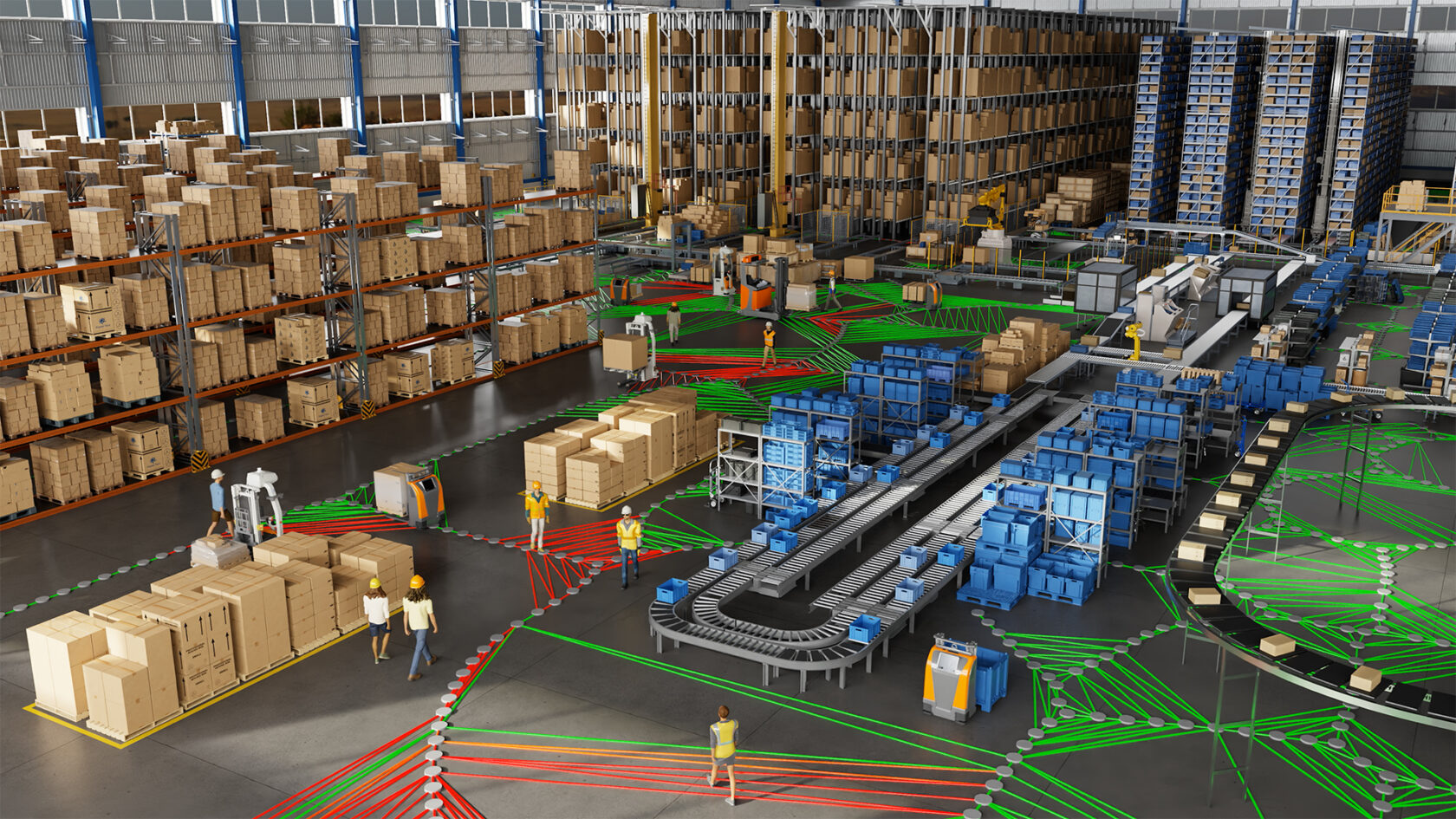
Mega lets builders populate their manufacturing facility digital twins with digital robots and their AI fashions, or the brains of the robots. Robots within the digital twin execute duties by perceiving their setting, reasoning, planning their subsequent movement and, lastly, finishing deliberate actions.
These actions are simulated within the digital setting by the world simulator in Omniverse, and the outcomes are perceived by the robotic brains via Omniverse sensor simulation.
With sensor simulations, the robotic brains determine the subsequent motion, and the loop continues, all whereas Mega meticulously tracks the state and place of each ingredient throughout the manufacturing facility digital twin.
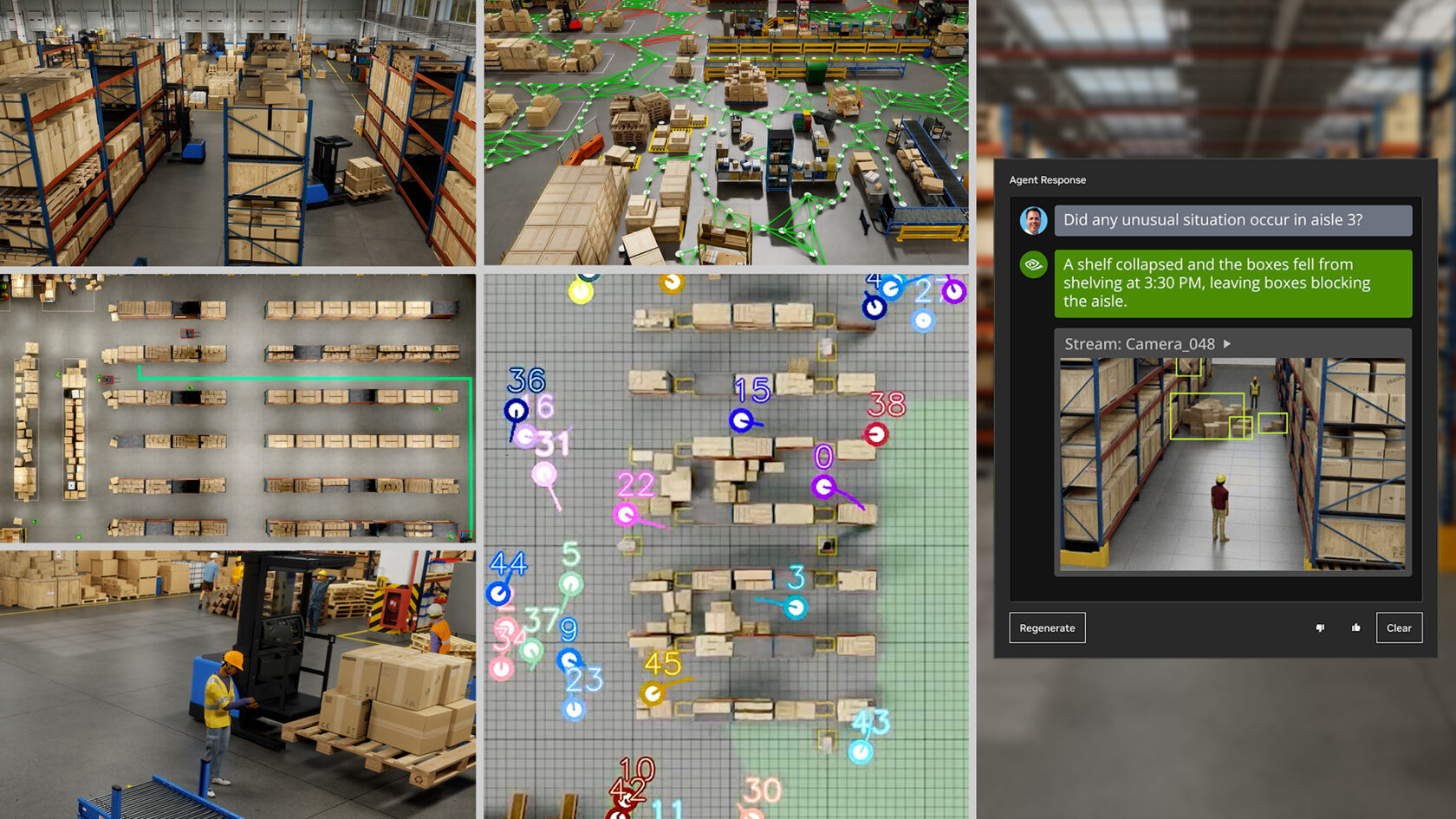
This superior software-in-the-loop testing permits industrial enterprises to simulate and validate adjustments throughout the protected confines of an Omniverse digital twin, serving to them anticipate and mitigate potential points to cut back danger and prices throughout real-world deployment.
What Firms Are Utilizing NVIDIA’s Three Computer systems for Robotics?
NVIDIA’s three computer systems are accelerating the work of robotics builders and robotic basis mannequin builders worldwide.
Common Robots, a Teradyne Robotics firm, used NVIDIA Isaac Manipulator, Isaac-accelerated libraries and AI fashions, and NVIDIA Jetson to construct UR AI Accelerator, a {hardware} and software program toolkit that allows cobot builders to construct functions, speed up growth and scale back the time to market of AI merchandise.
RGo Robotics used NVIDIA Isaac Perceptor to assist its wheel.me AMRs work in all places, on a regular basis, and make clever selections by giving them humanlike notion and visual-spatial info.
Humanoid robotic makers together with 1X Applied sciences, Agility Robotics, Apptronik, Boston Dynamics, Fourier, Galbot, Mentee, Sanctuary AI, Unitree Robotics and XPENG Robotics are adopting NVIDIA’s robotics growth platform.
Boston Dynamics is utilizing Isaac Sim and Isaac Lab to construct quadrupeds, and Jetson Thor for humanoid robots, to enhance human productiveness, sort out labor shortages and prioritize security in warehouses.
Fourier is tapping into Isaac Sim to coach humanoid robots to function in fields akin to scientific analysis, healthcare and manufacturing, which demand excessive ranges of interplay and adaptableness.
Utilizing Isaac Lab and Isaac Sim, Galbot superior the event of a large-scale robotic dexterous grasp dataset known as DexGraspNet that may be utilized to completely different dexterous robotic fingers, in addition to a simulation setting for evaluating dexterous greedy fashions. The corporate additionally makes use of Jetson Thor for real-time management of the robotic fingers.
Subject AI developed risk-bounded multitask and multipurpose basis fashions for robots to soundly function in out of doors area environments, utilizing the Isaac platform and Isaac Lab.
The Way forward for Bodily AI Throughout Industries
As world industries develop their robotics use instances, NVIDIA’s three-computer method to bodily AI presents immense potential to reinforce human work throughout industries akin to manufacturing, logistics, service and healthcare.
Discover NVIDIA’s robotics platform to get began with coaching, simulation and deployment instruments for bodily AI.

